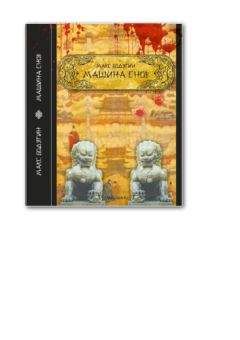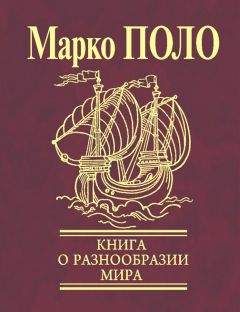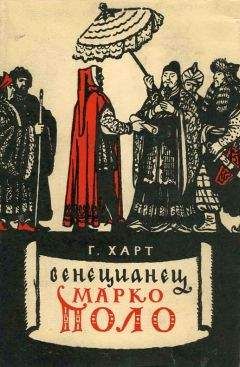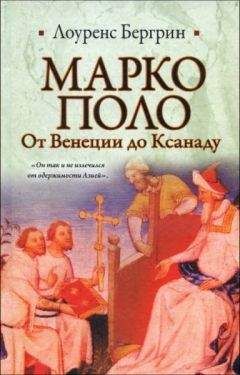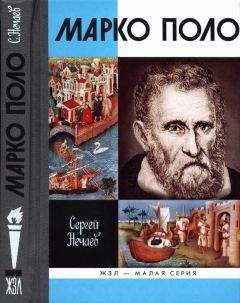Пауло Коэльо - The Alchemist
"I am following my destiny. It's not something you would understand."
The stranger placed his sword in its scabbard, and the boy relaxed.
"I had to test your courage," the stranger said. "Courage is the quality most essential to understanding the Language of the World."
The boy was surprised. The stranger was speaking of things that very few people knew about.
"You must not let up, even after having come so far," he continued. "You must love the desert, but never trust it completely. Because the desert tests all men: it challenges every step, and kills those who become distracted."
What he said reminded the boy of the old king.
"If the warriors come here, and your head is still on your shoulders at sunset, come and find me," said the stranger.
The same hand that had brandished the sword now held a whip. The horse reared again, raising a cloud of dust.
"Where do you live?" shouted the boy, as the horseman rode away.
The hand with the whip pointed to the south.
The boy had met the alchemist.
*
Next morning, there were two thousand armed men scattered throughout the palm trees at Al-Fayoum. Before the sun had reached its high point, five hundred tribesmen appeared on the horizon. The mounted troops entered the oasis from the north; it appeared to be a peaceful expedition, but they all carried arms hidden in their robes. When they reached the white tent at the center of Al-Fayoum, they withdrew their scimitars and rifles. And they attacked an empty tent.
The men of the oasis surrounded the horsemen from the desert and within half an hour all but one of the intruders were dead. The children had been kept at the other side of a grove of palm trees, and saw nothing of what had happened. The women had remained in their tents, praying for the safekeeping of their husbands, and saw nothing of the battle, either. Were it not for the bodies there on the ground, it would have appeared to be a normal day at the oasis.
The only tribesman spared was the commander of the battalion. That afternoon, he was brought before the tribal chieftains, who asked him why he had violated the Tradition. The commander said that his men had been starving and thirsty, exhausted from many days of battle, and had decided to take the oasis so as to be able to return to the war.
The tribal chieftain said that he felt sorry for the tribesmen, but that the Tradition was sacred. He condemned the commander to death without honor. Rather than being killed by a blade or a bullet, he was hanged from a dead palm tree, where his body twisted in the desert wind.
The tribal chieftain called for the boy, and presented him with fifty pieces of gold. He repeated his story about Joseph of Egypt, and asked the boy to become the counselor of the oasis.
*
When the sun had set, and the first stars made their appearance, the boy started to walk to the south. He eventually sighted a single tent, and a group of Arabs passing by told the boy that it was a place inhabited by genies. But the boy sat down and waited.
Not until the moon was high did the alchemist ride into view. He carried two dead hawks over his shoulder.
"I am here," the boy said.
"You shouldn't be here," the alchemist answered. "Or is it your destiny that brings you here?"
"With the wars between the tribes, it's impossible to cross the desert. So I have come here."
The alchemist dismounted from his horse, and signaled that the boy should enter the tent with him. It was a tent like many at the oasis. The boy looked around for the ovens and other apparatus used in alchemy, but saw none. There were only some books in a pile, a small cooking stove, and the carpets, covered with mysterious designs.
"Sit down. We'll have something to drink and eat these hawks," said the alchemist.
The boy suspected that they were the same hawks he had seen on the day before, but he said nothing. The alchemist lighted the fire, and soon a delicious aroma filled the tent. It was better than the scent of the hookahs.
"Why did you want to see me?" the boy asked.
"Because of the omens," the alchemist answered. "The wind told me you would be coming, and that you would need help."
"It's not I the wind spoke about. It's the other foreigner, the Englishman. He's the one that's looking for you."
"He has other things to do first. But he's on the right track. He has begun to
try to understand the desert.""And what about me?""When a person really desires something, all the universe conspires to help
that person to realize his dream," said the alchemist, echoing the words of the old king. The boy understood. Another person was there to help him toward his destiny.
"So you are going to instruct me?"
"No. You already know all you need to know. I am only going to point you in the direction of your treasure.""But there's a tribal war," the boy reiterated."I know what's happening in the desert.""I have already found my treasure. I have a camel, I have my money from
the crystal shop, and I have fifty gold pieces. In my own country, I would be a rich man."
"But none of that is from the Pyramids," said the alchemist."I also have Fatima. She is a treasure greater than anything else I have won."
"She wasn't found at the Pyramids, either."
They ate in silence. The alchemist opened a bottle and poured a red liquid into the boy's cup. It was the most delicious wine he had ever tasted."Isn't wine prohibited here?" the boy asked"It's not what enters men's mouths that's evil," said the alchemist. "It's what
comes out of their mouths that is."The alchemist was a bit daunting, but, as the boy drank the wine, he
relaxed. After they finished eating they sat outside the tent, under a moon so brilliant that it made the stars pale. "Drink and enjoy yourself," said the alchemist, noticing that the boy was
feeling happier. "Rest well tonight, as if you were a warrior preparing for combat. Remember that wherever your heart is, there you will find your treasure. You've got to find the treasure, so that everything you have learned along the way can make sense.
"Tomorrow, sell your camel and buy a horse. Camels are traitorous: they walk thousands of paces and never seem to tire. Then suddenly, they kneel and die. But horses tire bit by bit. You always know how much you can ask of them, and when it is that they are about to die."
*
The following night, the boy appeared at the alchemist's tent with a horse. The alchemist was ready, and he mounted his own steed and placed the falcon on his left shoulder. He said to the boy, "Show me where there is life out in the desert. Only those who can see such signs of life are able to find treasure."
They began to ride out over the sands, with the moon lighting their way. I don't know if I'll be able to find life in the desert, the boy thought. I don't know the desert that well yet.
He wanted to say so to the alchemist, but he was afraid of the man. They reached the rocky place where the boy had seen the hawks in the sky, but now there was only silence and the wind.
"I don't know how to find life in the desert," the boy said. "I know that there is life here, but I don't know where to look."
"Life attracts life," the alchemist answered.
And then the boy understood. He loosened the reins on his horse, who galloped forward over the rocks and sand. The alchemist followed as the boy's horse ran for almost half an hour. They could no longer see the palms of the oasis—only the gigantic moon above them, and its silver reflections from the stones of the desert. Suddenly, for no apparent reason, the boy's horse began to slow.
"There's life here," the boy said to the alchemist. "I don't know the language of the desert, but my horse knows the language of life."
They dismounted, and the alchemist said nothing. Advancing slowly, they searched among the stones. The alchemist stopped abruptly, and bent to the ground. There was a hole there among the stones. The alchemist put his hand into the hole, and then his entire arm, up to his shoulder. Something was moving there, and the alchemist's eyes—the boy could see only his eyes-squinted with his effort. His arm seemed to be battling with whatever was in the hole. Then, with a motion that startled the boy, he withdrew his arm and leaped to his feet. In his hand, he grasped a snake by the tail.
The boy leapt as well, but away from the alchemist. The snake fought frantically, making hissing sounds that shattered the silence of the desert. It was a cobra, whose venom could kill a person in minutes.
"Watch out for his venom," the boy said. But even though the alchemist had put his hand in the hole, and had surely already been bitten, his expression was calm. "The alchemist is two hundred years old," the Englishman had told him. He must know how to deal with the snakes of the desert.
The boy watched as his companion went to his horse and withdrew a scimitar. With its blade, he drew a circle in the sand, and then he placed the snake within it. The serpent relaxed immediately.
"Not to worry," said the alchemist. "He won't leave the circle. You found life in the desert, the omen that I needed."
"Why was that so important?"
"Because the Pyramids are surrounded by the desert."
The boy didn't want to talk about the Pyramids. His heart was heavy, and he had been melancholy since the previous night. To continue his search for the treasure meant that he had to abandon Fatima.
"I'm going to guide you across the desert," the alchemist said.
"I want to stay at the oasis," the boy answered. "I've found Fatima, and, as far as I'm concerned, she's worth more than treasure."
"Fatima is a woman of the desert," said the alchemist. "She knows that men have to go away in order to return. And she already has her treasure: it's you. Now she expects that you will find what it is you're looking for."
"Well, what if I decide to stay?"
"Let me tell you what will happen. You'll be the counselor of the oasis. You have enough gold to buy many sheep and many camels. You'll marry Fatima, and you'll both be happy for a year. You'll learn to love the desert, and you'll get to know every one of the fifty thousand palms. You'll watch them as they grow, demonstrating how the world is always changing. And you'll get better and better at understanding omens, because the desert is the best teacher there is.
"Sometime during the second year, you'll remember about the treasure. The omens will begin insistently to speak of it, and you'll try to ignore them. You'll use your knowledge for the welfare of the oasis and its inhabitants. The tribal chieftains will appreciate what you do. And your camels will bring you wealth and power.
"During the third year, the omens will continue to speak of your treasure and your destiny. You'll walk around, night after night, at the oasis, and Fatima will be unhappy because she'll feel it was she who interrupted your quest.
But you will love her, and she'll return your love. You'll remember that she never asked you to stay, because a woman of the desert knows that she must await her man. So you won't blame her. But many times you'll walk the sands of the desert, thinking that maybe you could have left… that you could have trusted more in your love for Fatima. Because what kept you at the oasis was your own fear that you might never come back. At that point, the omens will tell you that your treasure is buried forever.
"Then, sometime during the fourth year, the omens will abandon you, because you've stopped listening to them. The tribal chieftains will see that, and you'll be dismissed from your position as counselor. But, by then, you'll be a rich merchant, with many camels and a great deal of merchandise. You'll spend the rest of your days knowing that you didn't pursue your destiny, and that now it's too late.
"You must understand that love never keeps a man from pursuing his destiny. If he abandons that pursuit, it's because it wasn't true love… the love that speaks the Language of the World."
The alchemist erased the circle in the sand, and the snake slithered away among the rocks. The boy remembered the crystal merchant who had always wanted to go to Mecca, and the Englishman in search of the alchemist. He thought of the woman who had trusted in the desert. And he looked out over the desert that had brought him to the woman he loved.
They mounted their horses, and this time it was the boy who followed the alchemist back to the oasis. The wind brought the sounds of the oasis to them, and the boy tried to hear Fatima's voice.
But that night, as he had watched the cobra within the circle, the strange horseman with the falcon on his shoulder had spoken of love and treasure, of the women of the desert and of his destiny.
"I'm going with you," the boy said. And he immediately felt peace in his heart.
"We'll leave tomorrow before sunrise," was the alchemist's only response.
*
The boy spent a sleepless night. Two hours before dawn, he awoke one of the boys who slept in his tent, and asked him to show him where Fatima lived. They went to her tent, and the boy gave his friend enough gold to buy a sheep.
Then he asked his friend to go to into the tent where Fatima was sleeping, and to awaken her and tell her that he was waiting outside. The young Arab did as he was asked, and was given enough gold to buy yet another sheep.
"Now leave us alone," said the boy to the young Arab. The Arab returned to his tent to sleep, proud to have helped the counselor of the oasis, and happy at having enough money to buy himself some sheep.
Fatima appeared at the entrance to the tent. The two walked out among the palms. The boy knew that it was a violation of the Tradition, but that didn't matter to him now.
"I'm going away," he said. "And I want you to know that I'm coming back. I love you because…"
"Don't say anything," Fatima interrupted. "One is loved because one is loved. No reason is needed for loving."
But the boy continued, "I had a dream, and I met with a king. I sold crystal and crossed the desert. And, because the tribes declared war, I went to the well, seeking the alchemist. So, I love you because the entire universe conspired to help me find you."
The two embraced. It was the first time either had touched the other.
"I'll be back," the boy said.
"Before this, I always looked to the desert with longing," said Fatima. "Now it will be with hope. My father went away one day, but he returned to my mother, and he has always come back since then."
They said nothing else. They walked a bit farther among the palms, and then the boy left her at the entrance to her tent.
"I'll return, just as your father came back to your mother," he said.
He saw that Fatima's eyes were filled with tears.
"You're crying?"
"I'm a woman of the desert," she said, averting her face. "But above all, I'm a woman."
Fatima went back to her tent, and, when daylight came, she went out to do the chores she had done for years. But everything had changed. The boy was no longer at the oasis, and the oasis would never again have the same meaning it had had only yesterday. It would no longer be a place with fifty thousand palm trees and three hundred wells, where the pilgrims arrived, relieved at the end of their long journeys. From that day on, the oasis would be an empty place for her.
From that day on, it was the desert that would be important. She would look to it every day, and would try to guess which star the boy was following in search of his treasure. She would have to send her kisses on the wind, hoping that the wind would touch the boy's face, and would tell him that she was alive. That she was waiting for him, a woman awaiting a courageous man in search of his treasure. From that day on, the desert would represent only one thing to her: the hope for his return.
